Gregg Andrews - Thyra J. Edwards: Black Activist in the Global Freedom Struggle
Here you can read online Gregg Andrews - Thyra J. Edwards: Black Activist in the Global Freedom Struggle full text of the book (entire story) in english for free. Download pdf and epub, get meaning, cover and reviews about this ebook. year: 2011, publisher: University of Missouri Press, genre: Non-fiction. Description of the work, (preface) as well as reviews are available. Best literature library LitArk.com created for fans of good reading and offers a wide selection of genres:
Romance novel
Science fiction
Adventure
Detective
Science
History
Home and family
Prose
Art
Politics
Computer
Non-fiction
Religion
Business
Children
Humor
Choose a favorite category and find really read worthwhile books. Enjoy immersion in the world of imagination, feel the emotions of the characters or learn something new for yourself, make an fascinating discovery.
- Book:Thyra J. Edwards: Black Activist in the Global Freedom Struggle
- Author:
- Publisher:University of Missouri Press
- Genre:
- Year:2011
- Rating:5 / 5
- Favourites:Add to favourites
- Your mark:
Thyra J. Edwards: Black Activist in the Global Freedom Struggle: summary, description and annotation
We offer to read an annotation, description, summary or preface (depends on what the author of the book "Thyra J. Edwards: Black Activist in the Global Freedom Struggle" wrote himself). If you haven't found the necessary information about the book — write in the comments, we will try to find it.
In 1938, a black newspaper in Houston paid front-page tribute to Thyra J. Edwards as the embodiment of The Spirit of Aframerican Womanhood. Edwards was a world lecturer, journalist, social worker, labor organizer, womens rights advocate, and civil rights activistan undeniably important figure in the social struggles of the first half of the twentieth century. She experienced international prominence throughout much of her life, from the early 1930s to her death in 1953, but has received little attention from historians in years since. Gregg Andrewss Thyra J. Edwards: Black Activist in the Global Freedom Struggle is the first book-length biographical study of this remarkable, historically significant woman.
Edwards, granddaughter of runaway slaves, grew up in Jim Crowera Houston and started her career there as a teacher. She moved to Gary, Indiana, and Chicago as a social worker, then to New York as a journalist, and later became involved with the Communist Party, attracted by its stance on race and labor. She was mentored by famed civil rights leader A. Philip Randolph, who became her special friend and led her to pursue her education. She obtained scholarships to college, and after several years of study in the U.S. and then in Denmark, she became a womens labor organizer and a union publicist.
In the 1930s and 1940s, she wrote about international events for black newspapers, traveling to Europe, Mexico, and the Soviet Union and presenting an anti-imperialist critique of world affairs to her readers. Edwardss involvement with the Loyalists in the Spanish Civil War, her work in a Jewish refugee settlement in Italy, and her activities with U.S. communists drew the attention of the FBI. She was harassed by government intelligence organizations until she died at the age of just fifty-five. Edwards contributed as much to the radical foundations of the modern civil rights movements as any other woman of her time.
This fascinating biography details Thyra Edwardss lifelong journey and myriad achievements, describing both her personal and professional sides and the many ways they intertwined. Gregg Andrews used Edwardss official FBI filealong with her personal papers, published articles, and civil rights manuscript collectionsto present a complete portrait of this noteworthy activist. An engaging volume for the historian as well as the general reader, Thyra J. Edwards explores the complete domestic and international impact of her life and actions.
Gregg Andrews: author's other books
Who wrote Thyra J. Edwards: Black Activist in the Global Freedom Struggle? Find out the surname, the name of the author of the book and a list of all author's works by series.

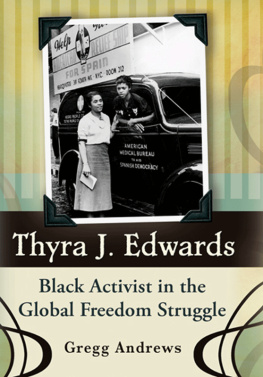


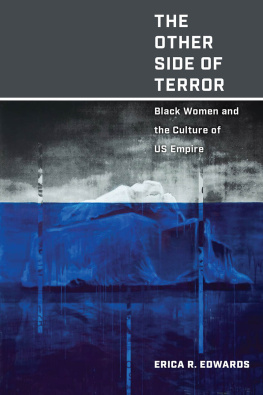
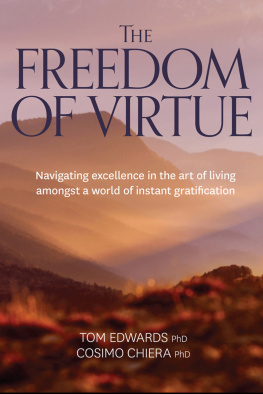
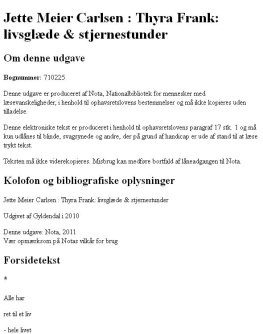



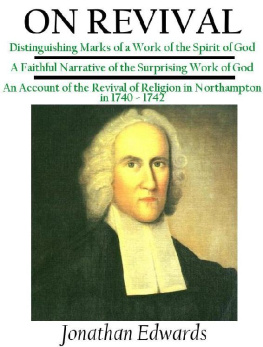
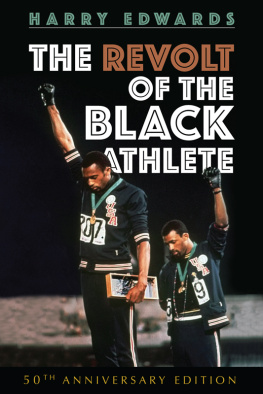



 This paper meets the requirements of the American National Standard for Permanence of Paper for Printed Library Materials, Z39.48, 1984.
This paper meets the requirements of the American National Standard for Permanence of Paper for Printed Library Materials, Z39.48, 1984.